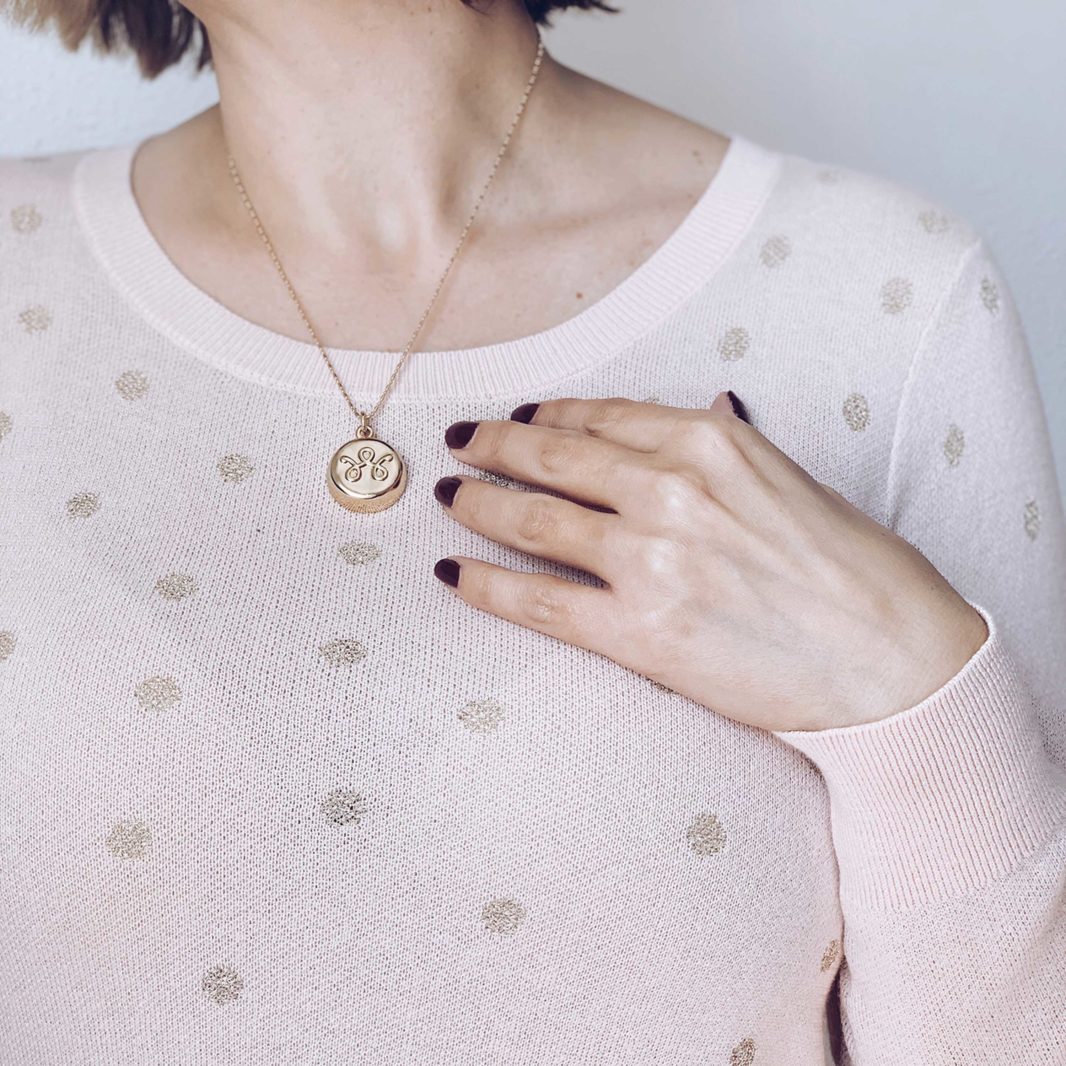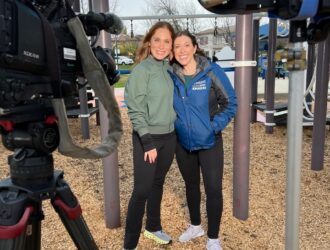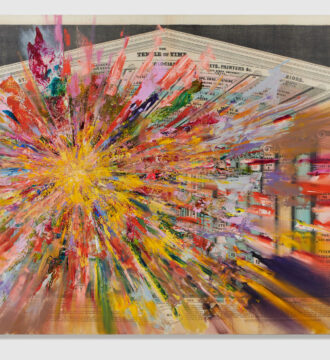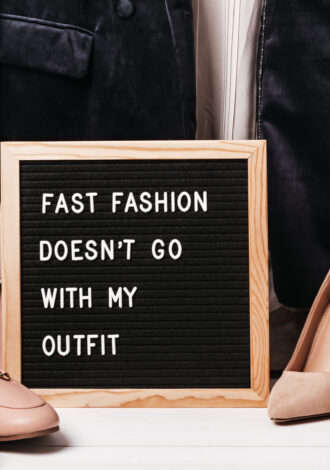For women, potentially scary situations are a reality of life, and avoiding them isn’t always possible.
Rajia Abdelaziz learned this firsthand in college, at University of Massachusetts Lowell, when she was followed to her car by a group of men one evening after dark.
As you can imagine, she was terrified, but she turned the experience to her advantage, creating a sleek personal safety device discreetly designed as jewelry to allow women to call for help in a quick and convenient way — and when they need it the most.
InvisaWear, which she co-founded with Ray Hamilton, launched at UMass Lowell in 2016. The stylish charm that can be worn as a necklace, bracelet or keychain, with embedded technology that instantly shares your location with local emergency dispatchers and trusted friends and family during a moment of crisis.
As a young entrepreneur and engineer, Abdelaziz shares with Exhale how her real life inspired the business, why other safety devices on the market aren’t practical and how asking for feedback can be a game-changer for your startup.

Exhale: How did you get the idea for a safety device worn as jewelry?
Rajia Abdelaziz:It originally started as a class project. I was president of the Society of Women Engineers at UMass Lowell, and, as the sun set earlier in the day, our attendance would go down. Everyone would say it was because they didn’t feel safe going out when it was dark.
At first, I said, why not get a can of pepper spray for $20? But, what if the attacker grabs it? You would have to keep it in your hand, but that’s inconvenient, and it might not be accessible to grab from your bag.
Around that period of time, I was walking back to my car one night after an event. I didn’t ask anyone to walk with me, because I didn’t want to inconvenience anyone. A car full of guys drives by, and they yell out inappropriate comments. Then, the car stops and one of them starts to get out. I ran to my car as quickly as I could and locked the doors. That’s when it really hit me that we need to actually bring this product to the market because it’s a very real need.

What was the biggest challenge when first launching the company?
We knew we needed to raise a lot of money from angel investors and venture capitalists to get the business up and running. But, a lot of investors would tell us we were too young, and because we hadn’t run a company before, they didn’t want to invest. They wouldn’t even look at our business plan.
They told us it was the fact that we had never developed technology like this before — since Bluetooth Low Energy (LE) was new at the time and different from regular Bluetooth. It was very important for us to understand what their real concerns were. Before starting InvisaWear, I had interned at Amazon, and I helped develop Bluetooth LE for wearable devices. This was before the Apple watch was super popular, so not a lot of engineers had the experience I had. Leveraging that helped us gain credibility with investors, and we ended up raising over half a million dollars to launch.

How are you different from other wearable safety devices on the market?
We’re one of the only jewelry companies out there powered by RapidSOS, which instantly sends your location to emergency dispatchers and loved ones during an emergency.
Most other devices are bulky and unattractive and consumers don’t want to wear them every day.
One of our customers is a senior citizen. She had fallen down, and her phone was out of reach. She used her InvisaWear necklace to call her family for help. Afterwards she told us, “I wouldn’t have been caught dead wearing one of those ugly panic buttons.”
We’re even looking into creating a waterproof line, because people have told us they never want to take it off, not even in the shower or in the pool, which is super flattering to hear.

How has InvisaWear impacted customers’ lives?
One of our customers got into a really bad car accident, and she was severely injured. She had her InvisaWear keychain with her. She double pressed it, and it immediately alerted her family and friends, who got there before the ambulance did. She was so happy that in such a scary moment, someone could be with her to go to the hospital.
At first, we thought our target market would mostly be college-aged girls, but we have all kinds of customers. From domestic violence victims, real estate agents who show properties by themselves to strangers, and doctors and nurses leaving hospitals late at night.
We have men who use InvisaWear, too; we have a silver unisex chain.

What does the logo design mean?
It’s a series of dots that are connected to one another, so it symbolizes being connected to your loved ones. We’re hoping our product will give women and men some peace of mind, and it will empower them to live their life more boldly.



 4 min read
4 min read




